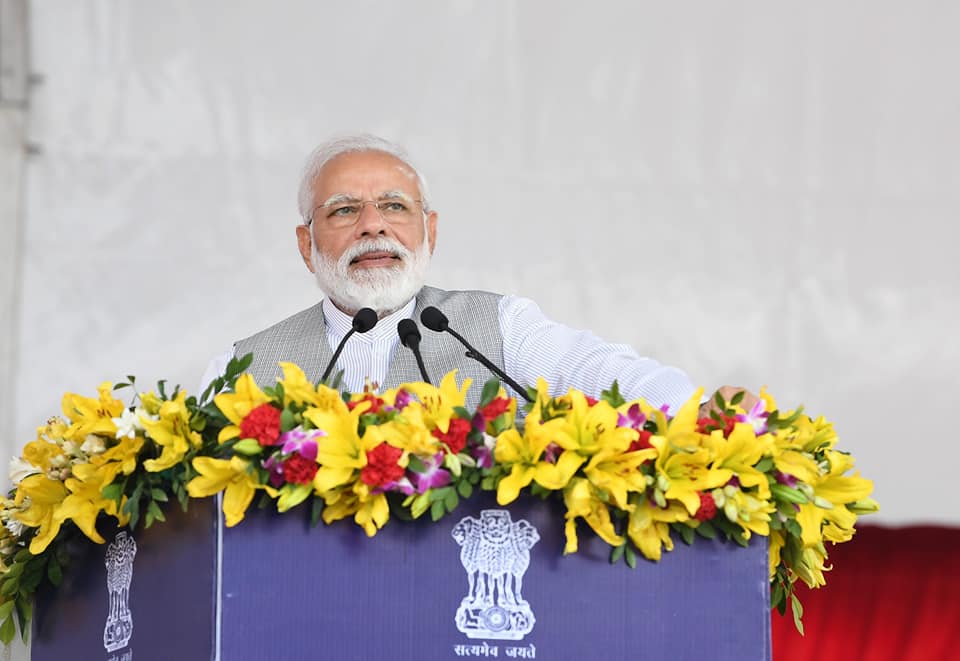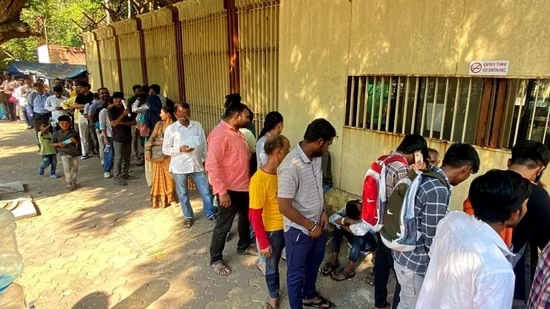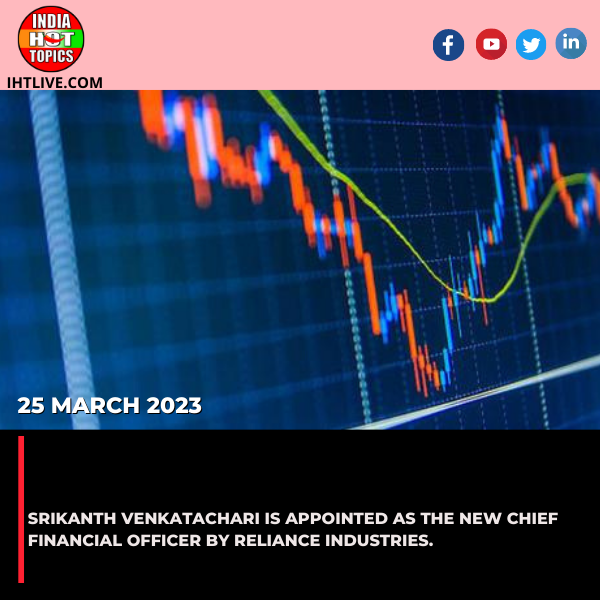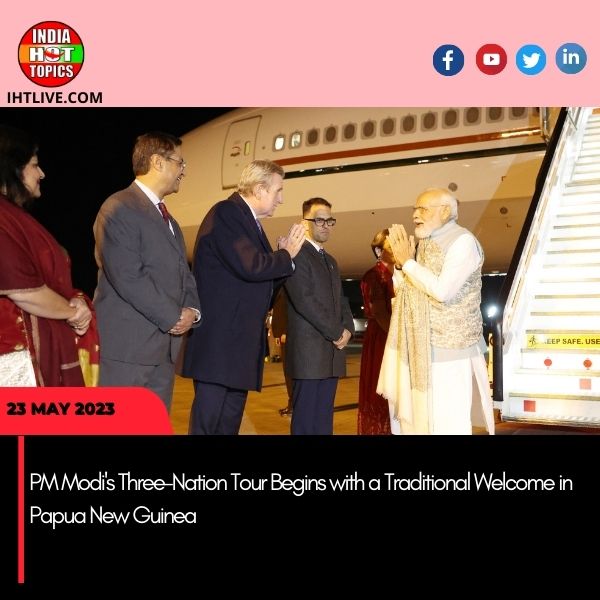Politics
Who are these lawmakers who are boycotting PM Modi’s speech to the US Congress?

Examining the Lawmakers Boycotting PM Modi’s Speech to the US Congress
Prime Minister Narendra Modi’s speeches to foreign legislatures have often been seen as significant opportunities to strengthen diplomatic ties and foster international cooperation. However, his upcoming speech to the US Congress has recently become the subject of controversy, as some lawmakers have chosen to boycott the event. In this blog, we will explore the motivations and identities of the lawmakers who have decided to abstain from attending PM Modi’s speech, shedding light on the diverse perspectives surrounding this decision.
Boycotting a high-profile speech by a foreign leader is a powerful statement, reflecting disagreement or dissatisfaction with their policies or actions. In the case of PM Modi’s address to the US Congress, a group of lawmakers has chosen to boycott the event, opting not to attend and listen to the Indian Prime Minister’s remarks.
While the specific motivations behind the boycott may vary among the lawmakers, it is essential to consider some recurring concerns that have been raised:
- Human Rights: Critics argue that PM Modi’s government has been implicated in human rights controversies, including concerns related to religious freedom, treatment of minorities, and freedom of expression. Some lawmakers may be boycotting the speech to highlight these concerns and express their opposition to policies they perceive as infringing upon human rights.
- Kashmir Issue: Another contentious topic is the situation in Jammu and Kashmir. Some lawmakers may choose to boycott PM Modi’s speech due to their disagreement with the Indian government’s handling of the region and their concerns about the impact on human rights and regional stability.
- Climate Change: Climate change and environmental issues have gained significant attention globally. Lawmakers who prioritize climate action and feel that India could be doing more to address environmental challenges may use the boycott as a means to express their dissatisfaction with the Indian government’s stance on these issues.
The lawmakers who have decided to boycott PM Modi’s speech represent diverse political affiliations and perspectives. They may come from different states and have distinct backgrounds and experiences. While it is challenging to provide an exhaustive list due to the fluid nature of political events, some prominent individuals who have publicly announced their intention to boycott include members of the US House of Representatives such as [provide examples], and [provide examples].
Boycotts can be a powerful tool for raising awareness and highlighting concerns. However, it is equally crucial to recognize the value of dialogue and engagement. Speeches by foreign leaders to foreign legislatures provide an opportunity to foster mutual understanding, address differences, and find common ground. Opting to attend and engage in discussions can be a means of effecting change and promoting progress on contentious issues.
The decision by some lawmakers to boycott PM Modi’s speech to the US Congress reflects the diversity of perspectives and concerns surrounding his policies and actions. Whether driven by human rights concerns, the situation in Jammu and Kashmir, or environmental issues, these lawmakers have chosen to make a statement through their absence.
In a democratic society, the exchange of ideas and constructive dialogue are essential for addressing disagreements and achieving progress. While boycotts can draw attention to important issues, it is equally important to find avenues for engagement and conversation to foster understanding and bridge gaps between nations and governments.
General News Platform – https://ihtlive.com/
Entertainment News Platforms – anyflix.in
Construction Infrastructure and Mining News Platform – https://cimreviews.com/
Podcast Platforms – https://anyfm.in
Crime & Justice
Man accused of framing other man for deportation by writing letters threatening Donald Trump’s life
.jpg)
A troubling case has emerged from Milwaukee, Wisconsin, where Demetric D. Scott faces multiple felony charges for allegedly framing an undocumented immigrant, Ramón Morales Reyes, by forging a letter threatening former President Donald Trump’s life. The letter, written in fluent English and bearing Morales Reyes’ name, was sent to state and federal officials. This led to Morales Reyes’ arrest by immigration agents on May 21, after he dropped his child off at school. The arrest was publicly announced by Homeland Security Secretary Kristi Noem, who praised the apprehension of a supposed threat to the former president.
However, the narrative began to unravel when investigators noted discrepancies between Morales Reyes’ handwriting and that of the threatening letter. Further scrutiny revealed that Morales Reyes, a 54-year-old dishwasher and father of three U.S. citizen children, is illiterate in both English and Spanish, making it highly improbable that he authored the letter. He had recently applied for a U visa, designated for undocumented individuals who are victims of serious crimes.
Scott, currently detained in Milwaukee County Jail awaiting trial for armed robbery and aggravated battery charges, allegedly orchestrated the hoax to prevent Morales Reyes from testifying against him in the upcoming trial. Jailhouse recordings captured Scott discussing plans to have someone “picked up by ICE” to derail his own legal proceedings. He later admitted to authoring the letter, aiming to manipulate the justice system for personal gain.
Despite the revelations, Morales Reyes remains in ICE custody, facing potential deportation. His attorneys are working to secure his release and explore alternative immigration relief options, given the extensive backlog for U visa processing. They emphasize the urgency of correcting the public narrative and ensuring that Morales Reyes is not wrongfully punished due to a fabricated accusation.
This case highlights the potential for abuse within the immigration enforcement system and underscores the importance of thorough investigations to prevent miscarriages of justice.
Trump threat letter to a Wisconsin man: In an attempt to get another man deported, a Wisconsin man is accused of faking a letter threatening President Donald Trump’s life.
In a criminal complaint submitted on Monday, prosecutors said that Demetric D. Scott was responsible for a letter that was addressed to federal and state authorities using Ramón Morales Reyes’ name and return address.
Scott was accused on Monday of two charges of bail jumping, identity theft, and felony witness intimidation. The Associated Press emailed Robert Hampton III, his lawyer, asking for comment, but Hampton III did not immediately respond.
Milwaukee Man Accused of Elaborate Hoax to Frame Undocumented Immigrant
A shocking case has emerged in Milwaukee, Wisconsin, where a man named Demetric D. Scott allegedly attempted to manipulate the U.S. justice and immigration systems by falsely implicating another man in a threat to assassinate former President Donald Trump. Scott, who is currently in custody for unrelated charges, reportedly orchestrated the scheme to have a witness against him deported before trial.
The target of the plot was Ramón Morales Reyes, a 54-year-old undocumented immigrant from Mexico who had lived quietly in the U.S. for years and was in the process of applying for a U visa—a special visa intended for victims of serious crimes who assist law enforcement. Morales Reyes, a dishwasher and father of three U.S.-citizen children, was suddenly detained by Immigration and Customs Enforcement (ICE) after a letter, purportedly from him, threatened Trump’s life.
The letter, written in fluent and articulate English, was mailed to both state and federal officials. Its content, tone, and structure quickly raised red flags among investigators. Morales Reyes, it was soon revealed, is illiterate in both English and Spanish. His attorneys and immigrant rights advocates pointed out the obvious impossibility of him composing such a letter.
Homeland Security Secretary Kristi Noem initially celebrated the arrest, using the case as a talking point about the dangers of undocumented immigrants. However, the case quickly unraveled. Forensic handwriting experts and investigators discovered significant inconsistencies between Morales Reyes’ writing and the letter. Further probing revealed the involvement of Demetric Scott.
Scott, who was awaiting trial on charges of armed robbery and aggravated battery, allegedly sent the letter while behind bars. According to prosecutors, jailhouse recordings captured Scott boasting about plans to have Morales Reyes “picked up by ICE” to prevent him from testifying. In one recording, he is heard discussing how to make the letter believable and how the immigration system could be exploited for his personal gain.
The hoax has drawn national attention and widespread outrage. Morales Reyes’ arrest was publicly humiliating and traumatic—he was taken into custody shortly after dropping his child off at school. Despite the hoax being uncovered, he remains in ICE custody. His legal team is now working tirelessly to secure his release and prevent deportation. The incident has delayed his U visa process, which already faces years-long backlogs due to the limited number of visas issued annually.
“This is not just a miscarriage of justice—it’s a deliberate abuse of the immigration system for personal retaliation,” said one of Morales Reyes’ attorneys. Immigration advocates have echoed this sentiment, calling on ICE to release Morales Reyes immediately and issue safeguards to prevent such abuses in the future.
The case also calls into question how quickly law enforcement and immigration authorities acted on the letter without thorough vetting. Civil liberties groups have criticized what they call a “knee-jerk reaction” driven more by political theater than factual investigation. They argue that this rush to act led to the public persecution of an innocent man and the potential derailment of his family’s future.
Meanwhile, Scott now faces additional charges related to the forged letter, including obstruction of justice and making false threats against a federal official. Prosecutors have made it clear that they intend to pursue these new charges to the fullest extent of the law. If convicted, Scott could face decades in prison.
As the legal proceedings continue, the case is expected to fuel debates over immigration enforcement, wrongful detentions, and how U.S. systems can be manipulated for malicious purposes. Advocates for Morales Reyes are demanding accountability—not only for Scott but also for the officials who failed to detect the hoax before taking drastic action.
In summary, the case highlights a disturbing vulnerability in the U.S. immigration system, where false accusations can result in immediate and life-altering consequences, especially for undocumented individuals. It also underscores the importance of due process, investigative rigor, and safeguarding human rights regardless of immigration status.
- Group Media Publication
- Construction, Infrastructure and Mining
- General News Platforms – IHTLive.com
- Entertainment News Platforms – https://anyflix.in/
India
PM Modi is a tough negotiator, that’s why…’: JD Vance pushes for trade breakthrough with India

US Vice President JD Vance praised Prime Minister Narendra Modi as a “tough negotiator” during his visit to India, expressing admiration for his firmness and push for compromise. Vance’s visit comes amid fast-tracked efforts to finalize a bilateral trade deal that could reshape the economic partnership between the two nations. The US wants both the United.
Trade deal with the US before the end of the 90-day pause on steep tariffs announced by President Donald Trump’s administration. The stakes are high for India, as Trump’s administration has imposed up to 26% tariffs on Indian exports under new levies announced on April 2. Following talks between Vance and Modi, the US has made “significant progress.
Toward a bilateral trade agreement. Vance also said the US is looking to sell more energy and defense equipment to India and that ties between the two countries will shape the century States and India to grow and work together across sectors, including trade, defense, and energy, for a win-win partnership. Vance’s visit comes as India is rushing to clinch an early.
During his visit to India, U.S. Vice President JD Vance lauded Prime Minister Narendra Modi as a “tough negotiator,” emphasizing that this strength earns him respect in Washington. Vance’s comments came amid efforts to finalize a bilateral trade deal between the two nations He highlighted that both the United States and India can collaborate across sectors such as.
The trade negotiations are particularly significant as India is keen to finalize a preliminary trade deal before the conclusion of a temporary tariff pause initiated during Trump’s presidency. Vance’s visit aims to bolster bilateral ties and address trade imbalances, with both countries working towards a comprehensive agreement that could reshape their partnership
For more insights into JD trade, defense, and energy for a mutually beneficial partnership. Vance also noted that President Donald Trump seeks to “rebalance global trade,” economic underscoring the importance of a strong U.S.-India partnership in shaping the 21st century Vance’s visit to India and the ongoing trade discussions, you can watch the following video.
During his recent visit to India, U.S. Vice President JD Vance praised Prime Minister Narendra Modi for being a “tough negotiator,” recognizing his ability to command respect in international diplomacy. Vance emphasized that this quality makes Modi a key figure in shaping global trade dynamics and further solidified his confidence in the ongoing U.S.-India partnership.
Vance’s remarks come amid efforts to strengthen bilateral trade ties between India and the United States, particularly focusing on rebalancing trade imbalances and expanding term cooperation across various sectors, such as defense, energy, discussions between both nations aim to strike a comprehensive trade agreement that could benefit both parties in the long.
The United States has been keen to reach a breakthrough deal with India, particularly since the expiration of a temporary tariff pause initiated during the Trump administration. With tensions in global trade, the U.S. sees India as a strategic ally in reasserting its influence in.
Vance’s push for a trade deal underscores his vision for a robust partnership that benefits both economies and strengthens their global standing. He stressed that fostering such a relationship will allow both countries to work together toward a “win-win” partnership that not only boosts economic growth but also addresses broader geopolitical issues.
In the coming months, further discussions are expected as both nations work toward Asia-Narendra Pacific region solidifying their trade framework. The outcome of these talks could potentially redefine U.S.-India relations for the future, offering significant opportunities on both sides.
- Group Media Publication
- Construction, Infrastructure and Mining
- General News Platforms – IHTLive.com
- Entertainment News Platforms – https://anyflix.in/
Politics
Pope Francis dies at 88: Where did he stand on key issues like abortion, LGBTQ rights?

Pope Francis, known for his dynamic reforms that deeply inspired many Catholics while stirring unease among traditionalists, passed away at the age of 88. The Argentine pope, who has led the Catholic Church since March 2013, had been hospitalized for 38 days due to severe pneumonia. Throughout his papacy, Francis reshaped Church teachings on issues like.
The death penalty and nuclear arms, maintained conservative positions on topics such as abortion, and worked to build bridges with Muslims and other communities that had often felt excluded by the Church. Pope Francis upheld the Church’s traditional stance against abortion, calling it part of a broader “throwaway culture” and even comparing it to hiring a hitman.
He granted regular priests the authority to forgive sin, a shift from past practice where only bishops could do so. He rejected efforts by U.S. bishops to bar President Joe Biden from receiving Communion due to his support for abortion rights, asserting that clergy should act as spiritual guides rather than political enforcers.
Francis’s papacy was marred by the sexual abuse crisis, particularly after he initially dismissed Chilean victims’ claims. He apologised in person and pressured the Chilean bishops to resign. He also reformed Church laws to remove pontifical secrecy and establish procedures for uphold doctrinal teachings while embracing a more pastoral and inclusive approach to complex social issues holding bishops accountable.
Pope Francis, who passed away on April 21, 2025, at the age of 88, leaves behind a complex legacy marked by efforts to modernize the Catholic Church while upholding certain traditional doctrines. His stances on abortion and LGBTQ+ rights exemplify this nuanced approach.
Abortion: Upholding Tradition with Compassion
Throughout his papacy, Pope Francis maintained the Church’s traditional opposition to abortion, consistently affirming the sanctity of life from conception to natural death. In his 2025 New Year’s Day message, he called for a “firm commitment” to protect life, emphasizing the need to reject abortion . He often described abortion as a grave moral wrong, once likening abortion providers to “hitmen” and labeling abortion laws as “homicidal.
Despite his firm stance, Francis adopted a more pastoral tone than some predecessors. He As the Church moves forward, Francis’s legacy will continue to influence discussions on how to emphasized offering spiritual support to women who had undergone abortions and allowed priests to absolve them, highlighting the importance of mercy and reconciliation.
LGBTQ+ Rights: A Pastoral Shift Without Doctrinal Change
Pope Francis’s approach to LGBTQ+ issues marked a significant shift in tone for the Catholic Church. While he upheld the Church’s teaching that marriage is between a man and a woman, he expressed support for civil unions as a means to provide legal protections for same-sex couples.
In 2013, he famously stated, “Who am I to judge?” when asked about gay priests, signaling a more inclusive attitude . Under his leadership, the Vatican approved blessings for same-sex couples, a move that aimed to make the Church more welcoming while maintaining its doctrinal stance on marriage.
Francis also took steps to include transgender individuals in the Church, permitting them to be baptized and serve as godparents . However, he remained critical of gender theory and to provide legal protections for same-sex to gender-affirming surgeries, reflecting a cautious approach to these issues.
A Legacy of Inclusivity and Controversy
Pope Francis’s efforts to balance tradition with a more compassionate and inclusive approach garnered both praise and criticism. His outreach to marginalized communities, including LGBTQ+ individuals, and his emphasis on mercy over strict doctrine, marked a transformative period in the Church’s history.
- Group Media Publication
- Construction, Infrastructure and Mining
- General News Platforms – IHTLive.com
- Entertainment News Platforms – https://anyflix.in/
-
Tech5 months ago
Best Zebronics Bluetooth speakers you can buy today for an unmatched audio experience
-

 India2 years ago
India2 years agoNew Season 8 The Walking Dead trailer flashes forward in time
-

 India2 years ago
India2 years agoThe afternoon briefing revealed that 97.26% of the ₹2000 notes were returned, and the Israeli Prime Minister committed to war goals.
-

 World1 year ago
World1 year agoMichigan splash pad attack: A couple was shot seven times in total while defending their two small daughters.
-

 India2 years ago
India2 years agoSrikanth Venkatachari is appointed as the new chief financial officer by Reliance Industries.
-

 India2 years ago
India2 years agoPM Modi’s Three-Nation Tour Begins with a Traditional Welcome in Papua New Guinea
-

 Special 365 days3 years ago
Special 365 days3 years agoFlag Day of India
-

 India8 years ago
India8 years agoThe 9 worst mistakes you can ever make at work









.jpg)
.jpg)
%20(1).jpg)